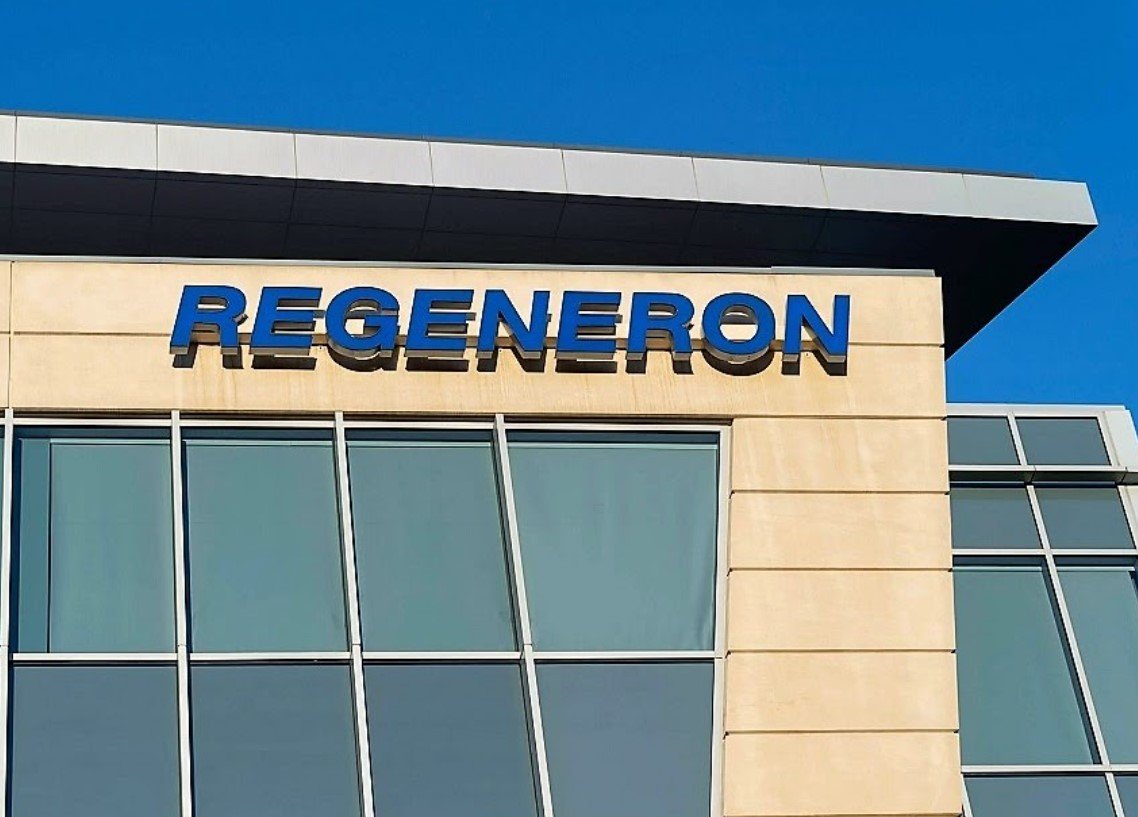Regeneron Pharmaceuticals (NASDAQ: REGN) delivered a strong fourth-quarter and full-year 2024 earnings report on February 4, surpassing Wall Street expectations. Investors responded positively, sending the stock up by 5%. However, the bigger surprise wasn’t just the earnings beat—it was Regeneron’s announcement that it will now pay a quarterly dividend, marking its entry into the dividend-paying club.
This is a big moment for the biotech giant, but does it make the stock a must-buy right now?
A Solid Start in the Dividend Game
Regeneron’s decision to introduce a quarterly dividend isn’t just symbolic—it’s making an immediate impact. The company will pay out $0.88 per share, which is relatively competitive for a first-time payer in the biotech sector.
To put that in perspective, here’s how Regeneron’s dividend stacks up against some of the biggest names in the industry:
| Company | Dividend Per Share (Quarterly) | Forward Dividend Yield |
|---|---|---|
| Regeneron | $0.88 | 0.50% |
| Eli Lilly | $1.50 | 0.70% |
| Gilead Sciences | $0.79 | 3.3% |
| Pfizer | $0.43 | 6.7% |
| Amgen | $2.38 | 3.2% |
| Johnson & Johnson | $1.24 | 3.2% |
| Merck | $0.81 | 3.8% |
| Bristol Myers Squibb | $0.62 | 4.2% |
| AbbVie | $1.64 | 3.4% |
Looking at the table, it’s clear that Regeneron’s payout is respectable, though its yield is relatively low due to the company’s high stock price of around $680 per share. By comparison, an investor could buy two shares of Bristol Myers Squibb at roughly $54 each and still receive a higher total dividend than a single share of Regeneron.
That said, for a company new to dividends, this is a strong opening move. But the real question is whether Regeneron can maintain and grow these payouts over time.

Business Strength: The Key to Sustainable Dividends
Regeneron’s earnings were impressive, but its future growth will be shaped by a few key factors—starting with Eylea, its top-selling treatment for wet age-related macular degeneration.
The company has faced growing competition from Roche’s Vabysmo, which has been capturing market share. Additionally, Amgen recently launched Pavblu, a biosimilar alternative to Eylea’s original formulation. Despite these challenges, Regeneron reported $1.5 billion in combined U.S. sales for Eylea and its newer high-dose version (Eylea HD) in Q4, a modest 2% increase year-over-year.
Why should investors remain optimistic?
- Eylea HD’s growth potential: The high-dose version only accounted for 20% of Eylea’s total sales in Q4, meaning it has plenty of room to gain traction.
- Dupixent’s momentum: The eczema treatment, co-developed with Sanofi, brought in $3.7 billion in global sales last quarter—up 15% year-over-year. Analysts predict it could eventually hit $20 billion annually, thanks to its expanded approval for COPD treatment.
- Pipeline depth: Regeneron is actively expanding its oncology portfolio, with multiple late-stage drug candidates that could fuel future revenue growth.
Even with some near-term hurdles, Regeneron’s long-term fundamentals look strong.
Share Buybacks vs. Dividends: Where Is the Focus?
One important signal from management: While Regeneron has introduced a dividend, it remains far more focused on share repurchases.
The company recently boosted its buyback program by $3 billion, bringing the total available for repurchases to $4.5 billion. CEO Leonard Schleifer made it clear that buybacks will remain the “primary means of returning capital to shareholders.”
That’s an important distinction. Companies with a strong dividend history tend to prioritize dividend growth over share repurchases, but that’s not the case here.
For investors looking purely for steady, growing income, Regeneron’s dividend may not be the most reliable option. The company could increase it over time, but there’s no guarantee. The buyback-heavy strategy suggests management prefers this route over consistently boosting dividends.
Should You Buy Regeneron Stock Now?
Regeneron is a solid investment, but not because of its dividend. The company’s real strength lies in its innovative drug pipeline, its growing Dupixent sales, and the potential of Eylea HD to offset competitive pressures.
Income-seeking investors should approach with caution—this isn’t a high-yield play like Pfizer or AbbVie. However, for those looking for a growth-oriented biotech with strong fundamentals and shareholder-friendly policies (even if dividends take a backseat), Regeneron is worth considering.
The dividend? Just a nice bonus.
































